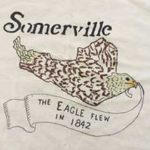
Eagle Feathers #276 –Daniel vs. the Lions
By Bob (Monty) Doherty
On October 17, 1781, General George Washington’s combined 17,000-man Colonial and French Army, along with a French Naval Fleet, ended the month-long siege of Yorktown, Virginia. This battle, one of the most important of the American Revolution, effectively ended the war. One month later in a letter to French General Lafayette, Washington stated, “It follows then as certain as that night succeeds the day, that without a decisive naval force, we can do nothing definitive, and with it everything honorable and glorious.”
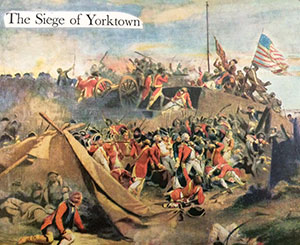
Yorktown wasn’t Washington’s first siege. His first was the Siege of Boston six years earlier, and the quote was probably in his mind at that time, but with the situation reversed. At that hour, he needed a Navy to cut off British supplies; but because he didn’t have one, he created his own small fleet with willing and able volunteers.
One true local patriot was Daniel Waters. When General Washington called upon him, he was a seafaring master mariner from Union Square’s Bow Street in Charlestown/Somerville. After the attack on the Powder House on September 1, 1774, he trained as a Minuteman along with others in Watertown and Malden. He also fought during the Battle of Lexington and Concord.
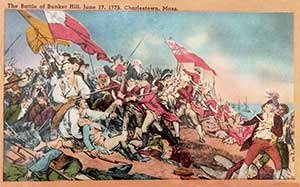
After the Battle of Bunker Hill and during the Siege of English troops in Boston, Waters helped prepare a cannon defense of Malden. He also directed a floating battery in the Charles River off Cobble Hill’s shore. It was after the evacuation of the British that Waters first entered into the lions’ den.
On January 20, 1776, Washington first appointed Waters to captain the schooner, Lee. After putting to sea that spring, he captured two enemy supply vessels. In early June, with assistance from the ship Warren, he impressed the General by capturing the first British transport of the war. This ship had ninety-four of the elite Black Watch infantry soldiers and others on board. He also captured its powder ship and a high-ranking General who was also aboard the transport. While commanding the Lee, he actively helped disrupt the arrival of the British Lions’ supplies to Boston and New York. His actions were shared with five other Washington’s Navy raiders.
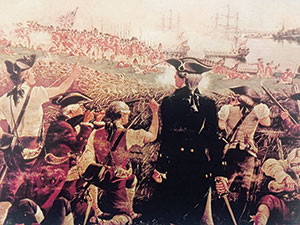
At the recommendation of Washington, he was appointed a captain in the Continental Navy on March 15, 1777. Four months later, he and his ship Fox surrendered to a superior British force. After a year in prison, he was part of an exchange which put him back at sea. Captain Waters was involved in many battles and sailed on multiple ships. To prevent its capture, he had to destroy one of them . . . the ship General Putnam.
Waters most famous engagement happened on Christmas Day, 1779. While captain of the Boston Privateer Thorn, he defeated two enemy ships of equal strength and with larger crews. Captain Waters was wounded during this two-hour battle which killed and injured eighteen of his crew. Future President John Adams wrote of this engagement, “There has not been a more memorable action this war.”
The Navy’s USS Waters (DD 115) was named in his honor.
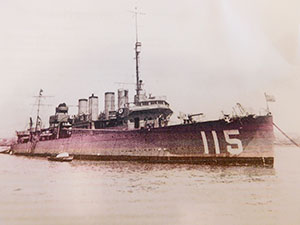















Reader Comments